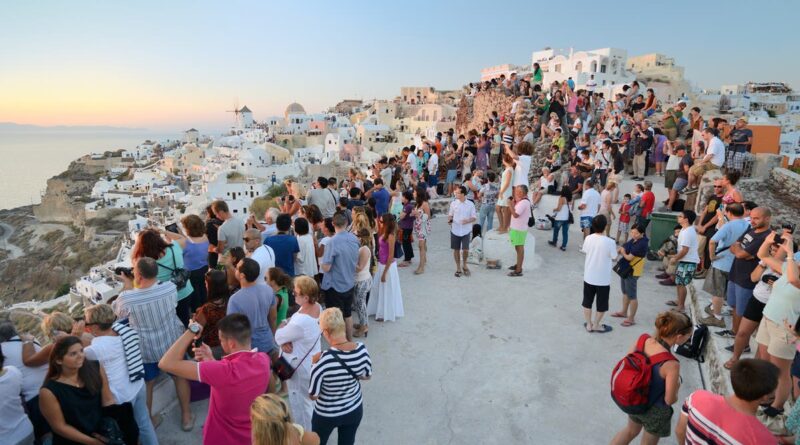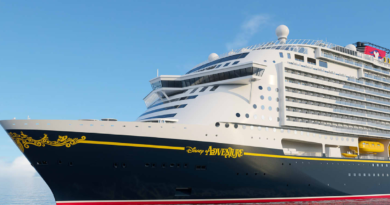Mayor of Santorini reveals plans to crackdown on overtourism
Support truly
independent journalism
Our mission is to deliver unbiased, fact-based reporting that holds power to account and exposes the truth.
Whether $5 or $50, every contribution counts.
Support us to deliver journalism without an agenda.
The mayor of one of Greece’s most visited islands has revealed plans to crack down on overtourism as tourist numbers surpass the number of residents daily during peak season.
Santorini is one of several holiday hotspots facing overcrowding this summer due to increased tourist numbers from cruise ships.
In July, a social media post from a councillor urging residents to stay indoors to facilitate 17,000 cruise ship passengers caused conflict with locals.
Last week, government officials proposed increasing the debarkation fee for cruise passengers visiting the Greek port from 35 cents to over €10 (£8).
Santorini Mayor Nikos Zorzos told the Greek Reporter that municipal authorities should be able to establish local tourist access fees “like Venice did” at tourism hotspots on the island.
Like many European hotspots battling overtourism, the problems plaguing locals include overdevelopment, congested traffic and a lack of parking spaces due to “inefficient management” of tourist flows.
Plans for small bypass roads and new parking spaces to decongest areas are in the works according to Mr Zorzos.
Mr Zorzos said: “It is our duty to protect this land from getting its identity altered, and any measures need to be in the direction of ensuring that Santorini will continue to be a great Greek destination.”
It’s not the first effort by the Greek island to control tourist “oversaturation”.
A study by the University of the Aegean in 2018 previously estimated that Santorini can sustain a tourist capacity of 8,000 visitors per day.
Researchers launched a digital berth allocation system to distribute cruise ship arrivals evenly and prevent congestion that could be reintroduced this year.
“Those 8,000 visitor arrivals per day suggested by the University of the Aegean study are totally sustainable if we allow the designated time between cruise ship berths,” said Mr Zorzos.
A push for off-peak travel to the blue and white isle to “reduce the pressure of the summer months” also saw a more frequent flight schedule introduced and tourist accommodation open for longer in 2011.
In April, Venice trialled a €5 (£4.26) charge to enter its historic centre and control visitor numbers on busy days until mid-July.
The new tourist tax scheme has since been called a “total failure” by city councillors in the Italian city’s battle against overtourism.
For more travel news and advice, listen to Simon Calder’s podcast




